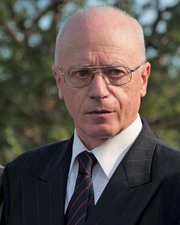The role of culture in establishing dialogue and cooperation in post-conflict situations
Speech at the International Conference “Advancing a Post-conflict Humanitarian Agenda” in Shusha, Azerbaijan
by Professor Dr Dr h.c. mult. Hans Köchler
Culture embodies the “life-world” of a community, a people, a nation, in the most genuine sense. It includes not only the domains of religion, classical arts, literature, and the search of scientific knowledge, but also popular traditions and sports. Culture shapes and expresses collective as well as individual identity – especially, but not exclusively, in relation to language. In our global, interconnected world, culture has become an element of diversity that has the dual potential to divide and unite, depending on the circumstances.
In times of war and conflict, adversaries tend to use issues of cultural identity to create stereotypes of “the other” as enemy. In this mindset, diversity is perceived as a threat. One’s own culture is considered superior; it is seen as the epitome of national identity and may even become the focal point of chauvinist self-assertion. Thus, in war, culture is easily politicized; artists, authors, musicians, or sportspeople are excluded from international competitions just because they happen to be from the “wrong” side (country). However, the abuse of culture for purposes of war mobilization could not be further from its real nature: In the multitude of “life- worlds,” with an almost infinite diversity of approaches, “culture” is the expression of how humanity has perceived, interpreted, or adorned reality through all of history.
In post-conflict situations, it is this universal aspect of culture that can bring people together in a joint effort. Whether it is enthusiasm for music or the arts, the search of knowledge or perfection in a particular field, or the “love of the game”: culture transcends all borders – whether political, geographic or mental – and allows people to discover their humanity. Shared cultural interests can become a common denominator that allows people to break down barriers previously considered insurmountable. A most encouraging example of the “dialogical power” of culture is the West-Eastern Divan Orchestra (consisting of an equal number of Israeli and Arab musicians) that has been designated by the United Nations as “UN Global Advocate for Cultural Understanding.” Having listened to yesterday’s brilliant performance of the Baku Chamber Orchestra, I would also like to emphasize the great potential of the Pan-Caucasian Youth Orchestra. It includes talented young musicians from Azerbaijan, Armenia, Turkey, and Georgia. Other, more mundane examples of the dialogical power of culture relate to the role of sports, as in the case of the so-called “ping-pong diplomacy” between the United States and China in 1971, which preceded the establishment of diplomatic relations among the two countries.
Genuine interest in, and respect for, each other’s culture – or “life-world” – is indispensable in any effort to rebuild trust and overcome political prejudice that may have become entrenched over long periods of conflict. State and civil society should make use of the many opportunities, whether in the fields of art, philosophy, scientific research or popular culture and sports. Meetings among philosophers may also have a positive impact.
On this special occasion, here in Shusha, I would like to recall the earlier initiative of Felsefe Dünyası (“World of Philosophy”), an East-West Research Center that originated in Azerbaijan, with the encouragement of then President Heydar Aliyev, himself a true friend of philosophy. Asking the big questions concerning the origin of life and the essence of Being, philosophy is indeed universal; it has a genuine transcultural dimension, appealing to and unifying all humankind beyond ethnic, cultural and political borderlines. I do remember the lively debates among philosophers from all corners of the globe, organized by that center in Baku, and I hope that one can build on its legacy – especially in a post-conflict scenario like the one we discuss here, in Shusha, where Muslim and Christian communities have lived together for hundreds of years.
Also, in situations after major conflict, projects of inter-religious dialogue can have special significance. In the words of the late Heydar Aliyev – and in the “spirit of Shusha” – one may confidently say: “Of all moral riches of humanity, religion’s distinguished feature is that it has always called people to friendship, solidarity and unity regardless of their [religious] affiliation.”
In conclusion: A polity that values cultural diversity and respects the cultural identity of “the other,” even the former adversary, will not only gain in international standing, but will also be able to make its position more secure among the community of nations. In view of an increasingly fragile international order, dialogue of cultures and civilizations remains one of the cornerstones of sustainable peace – domestically, regionally, and at global level.
Thank you for your attention. •
Source: International Conference “Advancing a Post-conflict Humanitarian Agenda”
in Shusha, Karabakh Mountains, Azerbaijan.
Transcript of the speech delivered at the 1st plenary session on 19 May 2022.
Hans Köchler (*1948) is emeritus professor of philosophy. From 1990 until 2008 he served as Chairman of the Department of Philosophy at the University of Innsbruck (Austria). Köchler’s research interests include legal and political philosophy, hermeneutics, and philosophical anthropology. As co-founder and president (since 1972) of the International Progress Organization (Vienna), he has committed himself to the causes of peace and inter-cultural dialogue. This has been evident in numerous publications and lectures all around the globe, as well as in his engagement in many international organizations. Köchler served in committees and expert groups on international democracy, human rights, culture, and development. In 2019 he was appointed as member of the University Council of the University of Digital Science (Berlin). Since 2018 he has taught at the Academy for Cultural Diplomacy in Berlin. Hans Köchler lives in Vienna.
